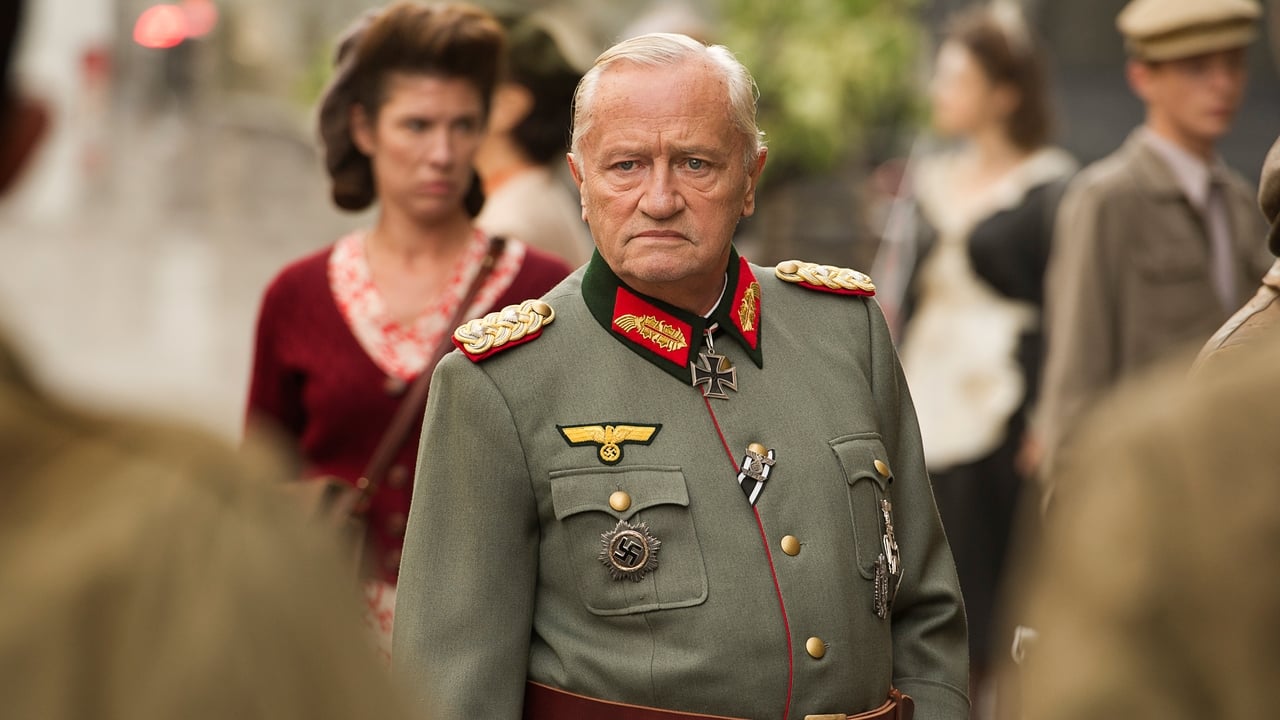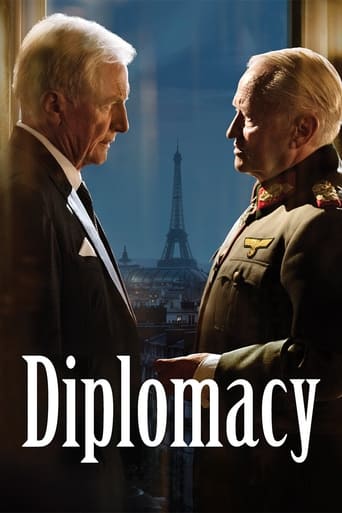

Stylish but barely mediocre overall
... View MorePlot so thin, it passes unnoticed.
... View MoreA Disappointing Continuation
... View MoreInstead, you get a movie that's enjoyable enough, but leaves you feeling like it could have been much, much more.
... View MoreBy late August of 1945, Allied forces that had broken out of the Normandy beach head in July were racing across France and were approaching Paris. It was their intention to bypass the city and continue their push toward Germany. French Partisan fighters rose up against the German troops occupying their capital, but lacked the strength to quickly dispatch their enemies and take control of the city.Adolph Hitler had ordered the Paris commander to blow up or burn much of the city before leaving it, and the Germans set explosives and prepared to follow those orders. Learning of this, Allied Supreme Commander Eisenhower gave the go ahead to Charles de Gaulle's French forces to take Paris, but their ability to prevent the city's destruction was in serious question. In 1965, the Collins/ La Pierre historical book, "Is Paris Burning?" was published and became a best seller. A movie of the same title was released the following year. This book describes in broad detail how the situation in Paris developed and how it ended.Almost half a century later, Zeitgeist Films released "Diplomatie". This film focuses on the dramatic interchange between German commander Von Choltitz, who felt compelled to carry out his Fuhrer's orders, and Swedish consul Nordling, who hoped to change his mind.The acting and the dialogue of these two main characters is a tense and captivating debate. Rarely do contemporary films focus so intently on a non-violent confrontation between adversaries. The acting is excellent, the script top notch, and the attention to period detail marvelous. This is an outstanding motion picture.
... View MoreThe Nazis destroyed Warzaw and had the same plans for Paris, when the Allies were approaching. So why didn't it happen? Was it because of this Swedish consul's night talks with the German commander or?This is obviously filmed theater. This can function if it's film in its own right, but here it isn't. If it wasn't for the camera changing positions, it could as well be filmed from a stage.But surely it's exciting anyway with passable acting and including a big moral dilemma. but telling that Paris was saved cannot be considered a spoiler. Night talks are not to seen as banalities. Not even in theater.
... View MoreI got the chance to see "Diplomacy" last night at the Angelika in Dallas, and I was pleasantly surprised by how much I liked it. Twenty minutes into it, I saw where the movie was heading, the set up of it, and enjoyed every minute. The movie is a shining light on the wisdom, gentleness, and burden of age and power. Two elderly men are grappling, albeit with very different styles, over the future of Paris and its iconic treasures. It's a snapshot of history that I never saw, and holds a profound depth I won't forget. The play-turned-movie is the story of the general in charge of the Nazi Occupation of Paris, and the Swedish diplomat who has a passing relationship with the man when the play begins. All of Paris' great architectural treasures are to be destroyed to buy time for the retreat of the Nazi army across France, and it's only a matter of hours before the order is given. The Swedish diplomat in his powerful and sly persuasive style takes on the general in trying to dissuade him through some of the most artful, intelligent and brilliant rhetoric I've seen in a movie. In many ways the film feels like a boxing match, a final scene in a Rocky movie between an underdog boxer and his strong but weary opponent who seemingly has no weaknesses. There is both the German and French culture's strengths and weaknesses on display (even though the diplomat represents Sweden he openly says that Paris has embraced her and she him). I love this sort of contrast, particularly in showing that Germans have a softer side that's deep and valuable to them, and the French have a gristly fighting spirit that was formidable and feared up to this day; unfortunate stereotypes for both cultures. I read a quora article today about how the French didn't flee the Germans, they fought but in the WWI style that was ineffective against the Blitzkrieg (now adopted by all modern militaries in the world today). We also forget the British lost to the Germans shortly afterward, and were driven back to their island. The movie feels like a play, which I would somewhat fault it for in some ways, but it doesn't become a distraction or take away from the film. Also the movie seems small at times, with 90% of the dialog happening in one room in a hotel where the Nazi general works. Granted, this is likely due to the low budget and it does help the motif of the movie being about the power these two men have over the fate of Paris. This movie falls in line with a string of films lately that could almost make a genre itself: the artist/culturally sensitive figure fighting to preserve and save artistic treasures amidst a raging battle. "Monuments Men" and "The Train" come to mind immediately.I can't help but think of all the destruction caused by wars, the Abbey at Monte Cassino being one, as well as several that we're seeing in the Middle East. I remember reading about how many important buildings and museums were threatened and attempted to be preserved as the US army went through Iraq. Historical treasures that are destroyed by war is one of the greatest arguments against it, its chaos and disregard for what's most valuable in the world. A broader theme though is the value of an entire culture and its history, and how often war and strife easily take those down, possibly because they're so prominent and essential to a city's character. Coming from a country like the US, I don't have as acute a sense of this as those who live in Europe, but there is still something in humanity in which we are drawn to monumental art, and value it as more than just a tourist site. Paris is an easy example of this. The movie is worth seeing, and it's quaint in its setting, and beams a sense of humility which is refreshing when movies in our time seem to fight to be the biggest (though the consequences of the decisions made in the movie are massive). It's where live theater has something to offer the world of movies, a kind of depth through being as small as possible.
... View Morea cocoon around the two lead characters. good acting - not really surprise if the name of director and the actors are not new for viewer. right doses of tension. an impressive story. adaptation of a play, the film has the virtues of it. slow, precise, careful attention for details, Diplomatie is not original but profound interesting. not only for theme but for the inspired manner to use the ingredients. to slow for be for every public, too French for not inspire the interest for an apocalyptic hypothesis, remembering old dialogs in night about fundamental problems- brilliants duels between powerful characters , it has the rare gift to be a kind of ball of memories and meeting with a splendid way to make art.and the confrontation between Niels Arestrup and Andre Dussollier, not convincing at whole, remains a splendid gem of acting.
... View More